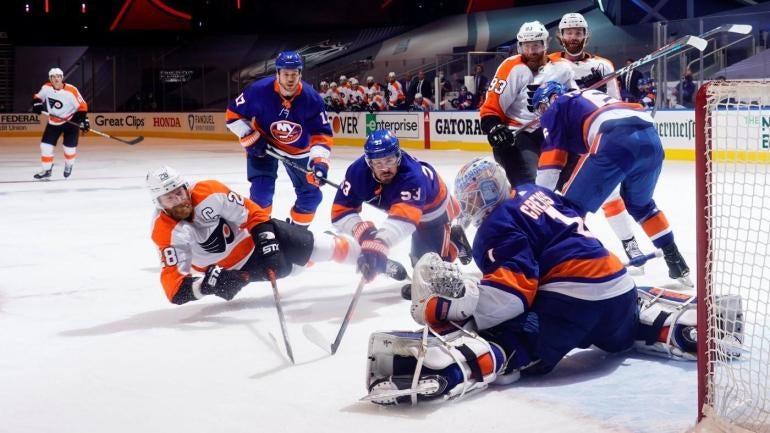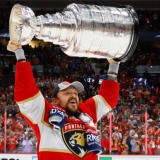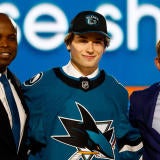
The Philadelphia Flyers' bubble has been popped.
The Flyers were one of the NHL's hottest teams at the time of the coronavirus pause in March, and they picked up right where they left off once play resumed in August. After entering the restart as the Eastern Conference's fourth seed, the Flyers had a tremendous round-robin stage in which they won all three games and claimed the East's top seed.
But after a less than stellar opening-round showing against the Canadiens, the Flyers saw their Stanley Cup dreams dashed by the Islanders in round two, losing to the Isles in seven games. So, what went wrong for Philly? Let's dive in.
Lack of productions from stars
If you want to win in the playoffs, your best players have to play like your best players and produce. Unfortunately for the Flyers, their best playmakers couldn't find a way to get much of anything going against the Islanders in this series. Here are Philadelphia's top five scorers during the regular season and how they fared in the second round:
- Travis Konecny: 7 GP, 0 G, 4 A
- Sean Couturier: 6 GP, 2 G, 2 A
- Jakub Voracek: 7 GP, 0 G, 1 A
- Claude Giroux: 7 GP, 1 G 3 A
- Kevin Hayes: 7 GP, 3 G, 3 A
Six total goals from your top five forwards in a seven-game series? That's just not enough juice from the top of the lineup. Obviously, the Islanders are a good defensive team and they can make life difficult for any player in an opposing uniform, but the Flyers were one of the best offensive teams in the league for the last few months of the regular season. They were able to control play and had spurts of dominance for fleeting moments in this series -- so we know they're capable.
Unfortunately, they struggled to find that extra gear for much of the series and their best players should shoulder a lot of that blame.
Islanders' structure and forecheck
No surprise here: When the Islanders are winning games, it's usually because they're playing good defensive hockey and applying steady pressure to an opposing team's would-be attack. Barry Trotz's system was once again effective in this series, as the Isles successfully choked the Flyers' offense into submission.
New York's ability to roll four lines and keep constant pressure on the puck is its biggest key to success, and their forecheck gave the Flyers nightmares throughout this series. At times, Philadelphia looked overwhelmed in their own end; they frequently lost puck battles and races to retrievals. When they did gain possession and tried to go the other way, they had some trouble finding clean zone entries and, when they did gain the zone, they were met by structured resistance that limited quality chances.
Throughout the seven games, the Islanders limited Philadelphia to 65 high-danger chances at 5v5 (via Natural Stat Trick). If your 5v5 attack is going to be that limited, you're probably going to want some help via special teams. And yet ...
No power-play success
The Flyers didn't score a single power-play goal in the series. The Islanders were disciplined and gave Philly only 13 power-play opportunities in the series. But the Flyers scored zero (0) goals on the man-advantage. I don't think a lot more needs to be said about that.
A dominant Game 7
After climbing out to a 3-1 series lead, the Islanders allowed the Flyers to rip off back-to-back overtime victories and climb back in the series to force a do-or-die Game 7. Then, with its backs against the wall, New York played what was essentially, for them, a bread & butter game. The Islanders were great defensively, they turned some mistakes into offensive opportunities going the other way and they converted a few times on the rush. New York Islanders hockey.
In that series finale, which New York won 4-0, Philadelphia mustered only 16 shots on net. Even from a neutral perspective, it was a bit painful to watch how useless Philly was rendered in a win-or-go-home scenario.
And the Islanders have been something in all their series close-out games so far. In their clinchers against the Panthers, Capitals and Flyers, the Islanders have outscored the opposition 13-1 while surrendering only a combined 62 shots on goal. Sure, it has taken them multiple attempts to close out each of those series, but they've been able to play some of their best games when they've needed to finish off an opponent.
Got beat at their own game
When it comes down to it, the Flyers and Islanders like to play a similar style of hockey. At their best, both teams are relentless and find success by applying constant pressure via the forecheck and simply outworking the opposition all game long. That sort of tenacity made the Flyers look like world-beaters in the round robin, and it was especially impressive after such a long layoff.
But this series came down to which team had the better execution and leadership. Ultimately, the Islanders beat Philly at their own game, and that's got to be a real bitter pill to swallow if you're on the Philadelphia coaching staff.
A lot of people like to criticize the Islanders for playing a boring brand of hockey but, honestly, their ability to grind down opponents and make them seem boring is actually pretty impressive -- especially when it's against a team that's capable of doing the same.


















